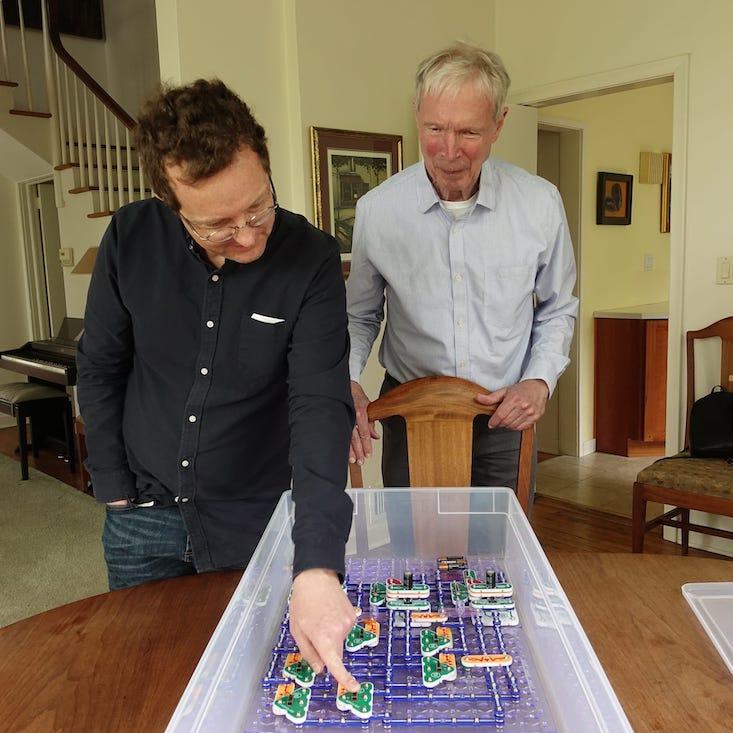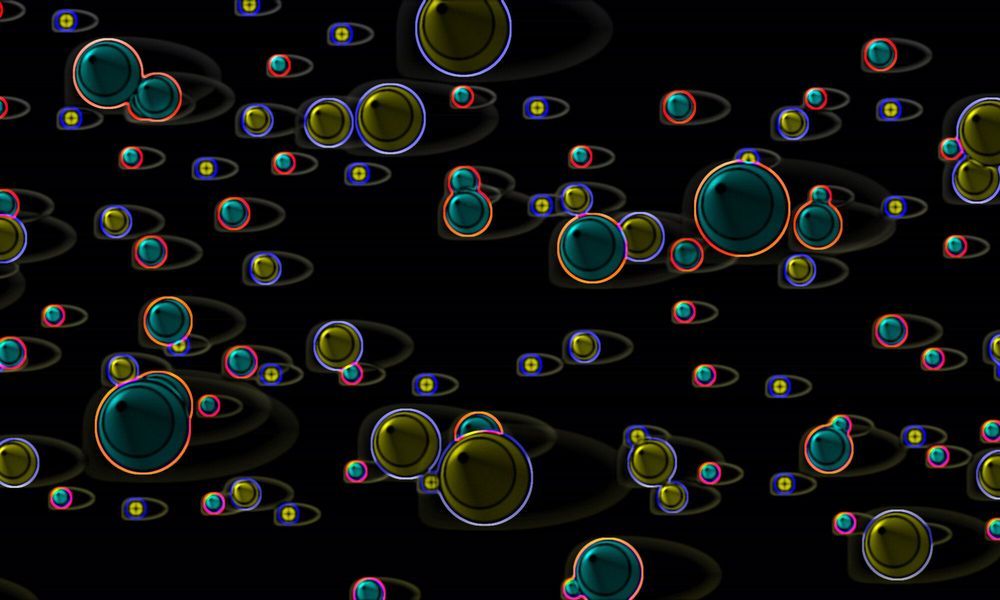Gravitational Wave Propulsion 🤔 ⤵️ check the abstract.
This paper sums up aftereffects of past examinations, including proposed models, so as to construct an advanced hypothetical structure for Gravitational Wave Propulsion. The structure com� prises of groups of generators of gravitational waves, which have been hypothesized yet require experimentation, and models of push age. High effectiveness generators depend on cognizant sources, for example synchronized MEMS oscillators, the HTSC Gaser, in light of cognizant turn 2 changes in s-wave/d-wave super� conductors, and the atomic electromagnetic wave to gravitational wave up-changing over transducer, in view of dineutrons. After gravitational wave age is effectively demonstrated in the research center, it will be pos-sible to apply an idea created in the field of cosmology. It was discovered that the back-ground vitality thick� ness may offer mass to the graviton, which thus may permit gravi� tons to produce push. Nearby foundation vitality thickness can be expanded by accusing materials of high dielectric steady in close� ness to the wave producing components. Centered Gravitational Waves may likewise create singularities, where the radiation is changed over into a coulomb-like gravitational field. Gravitation� al singularities will set a n-body floating framework among them� selves, the rocket, and the rest of the assortments of the universe, with clear propulsive impacts. Uses of the current examination will prompt an extraordinary drive framework fit for empowering the quick investigation of the nearby planetary group, the neigh� borhood star framework, and potentially the entire system. On a general basis, a vehicle traveling in space requires energy and a reaction mass to accelerate and reach useful speeds. Usually the reaction mass is the mass of the pro- pellant, which in most circumstances has also the role of energy source. Vehicles that are not required to carry re- action masses are more efficient and light� weight, but con- ventional ones are limited in scope. It is a fact that, after extraordinary developments, space travel by rocket tech� nology has reached its limits and a new paradigm is re- quired to make a big step forward in space propulsion; a step that should enable the exploration of nearby star systems and possibly the whole galaxy. These goals may seem unreachable with the current understanding of physics. Anyway with an open mind and a prag� matic approach, it is well known that we are dealing with opinions that are often suggested by the lack of interdisciplinary approach� es to complex problems. It often happened that when so called theoretical limits were found wrong, accidental dis- coveries have shown why the good theory was errone- ously applied the first time. An alternative to accidental discoveries are pieces of knowl� Review on Gravitational wave propulsion Ching Lee University of Trento, Italy edge gathered from hun- dreds of research papers from different disciplines com- bined in an unusual way to create new concepts. They are normally rejected by experts of their single research field, thus painstaking efforts are required to simply communi- cate the new concept and let it grow in the laboratories. At the and of the last century numerous theoretical efforts have started to show that Gravitational Waves (GWs) have not only astronomical and astrophysicalrelevance, but they also have technological applica� tions. Among them, sev- eral theories have approaches identified for telecommuni- cation, imaging, material processing, and space propul- sion. This paper summarizes results of past analyses, in� cluding proposed examples, in order to build a modern theoreti� cal framework for Gravitational Wave Propulsion. The framework consists of families of generators of gravitational waves, which have been theorized but still require experimentation, and models of thrust generation. High efficiency generators are based on co � herent sources, for instance synchronized MEMS oscillators, the HTSC Gaser, based on coherent spin-2 transitions in s-wave/d� wave superconductors, and the nuclear electromagnetic wave to gravitational wave up-converting transducer, based on dineutrons. After gravitational wave generation is successfully proven in the laboratory, it will be pos- sible to apply a concept developed in the field of cosmology. It was found that the back- ground energy density may give mass to the graviton, which in turn may allow gravitons to produce thrust. Local background energy density can be increased by charging materials with high dielectric constant in close proximity to the wave generating elements. Focused Gravita� tional Waves may also produce singularities, where the radiation is converted into a coulomb-like gravitational field. Gravitational singularities will set an n-body gravitating system among them� selves, the spacecraft, and the remaining bodies of the universe, with obvious propulsive effects. Applications of the present anal� ysis will lead to a unique propulsion system capable of enabling the fast exploration of the solar system, the local star system, and possibly the whole galaxy proposed models, so as to construct an advanced hypothetical structure for Gravitational Wave Propulsion. The structure com� prises of groups of generators of gravitational waves, which have been hypothesized yet require experimentation, and models of push age. High effectiveness generators depend on cognizant sources, for example synchronized MEMS oscillators, the HTSC Gaser, in light of cognizant turn 2 changes in s-wave/d-wave super� conductors, and the atomic electromagnetic wave to gravitational wave up-changing over transducer, in view of dineutrons. After gravitational wave age is effectively demonstrated in the research center, it will be pos-sible to apply an idea created in the field of cosmology. It was discovered that the back-ground vitality thick� ness may offer mass to the graviton, which thus may permit gravi� tons to produce push. Nearby foundation vitality thickness can be expanded by accusing materials of high dielectric steady in close� ness to the wave producing components. Centered Gravitational Waves may likewise create singularities, where the radiation is changed over into a coulomb-like gravitational field. Gravitation� al singularities will set a n-body floating framework among them� selves, the rocket, and the rest of the assortments of the universe, with clear propulsive impacts. Uses of the current examination will prompt an extraordinary drive framework fit for empowering the quick investigation of the nearby planetary group, the neigh� borhood star framework, and potentially the entire system. On a general basis, a vehicle traveling in space requires energy and a reaction mass to accelerate and reach useful speeds. Usually the reaction mass is the mass of the pro- pellant, which in most circumstances has also the role of energy source. Vehicles that are not required to carry re- action masses are more efficient and light� weight, but con- ventional ones are limited in scope. It is a fact that, after extraordinary developments, space travel by rocket tech� nology has reached its limits and a new paradigm is re- quired to make a big step forward in space propulsion; a step that should enable the exploration of nearby star systems and possibly the whole galaxy. These goals may seem unreachable with the current understanding of physics. Anyway with an open mind and a prag� matic approach, it is well known that we are dealing with opinions that are often suggested by the lack of interdisciplinary approach� es to complex problems. It often happened that when so called theoretical limits were found wrong, accidental dis- coveries have shown why the good theory was errone- ously applied the first time. An alternative to accidental discoveries are pieces of knowl� Review on Gravitational wave propulsion Ching Lee University of Trento, Italy edge gathered from hun- dreds of research papers from different disciplines com- bined in an unusual way to create new concepts. They are normally rejected by experts of their single research field, thus painstaking efforts are required to simply communi- cate the new concept and let it grow in the laboratories. At the and of the last century numerous theoretical efforts have started to show that Gravitational Waves (GWs) have not only astronomical and astrophysicalrelevance, but they also have technological applica� tions. Among them, sev- eral theories have approaches identified for telecommuni- cation, imaging, material processing, and space propul- sion. This paper summarizes results of past analyses, in� cluding proposed examples, in order to build a modern theoreti� cal framework for Gravitational Wave Propulsion. The framework consists of families of generators of gravitational waves, which have been theorized but still require experimentation, and models of thrust generation. High efficiency generators are based on co � herent sources, for instance synchronized MEMS oscillators, the HTSC Gaser, based on coherent spin-2 transitions in s-wave/d� wave superconductors, and the nuclear electromagnetic wave to gravitational wave up-converting transducer, based on dineutrons. After gravitational wave generation is successfully proven in the laboratory, it will be pos- sible to apply a concept developed in the field of cosmology. It was found that the back- ground energy density may give mass to the graviton, which in turn may allow gravitons to produce thrust. Local background energy density can be increased by charging materials with high dielectric constant in close proximity to the wave generating elements. Focused Gravita� tional Waves may also produce singularities, where the radiation is converted into a coulomb-like gravitational field. Gravitational singularities will set an n-body gravitating system among them� selves, the spacecraft, and the remaining bodies of the universe, with obvious propulsive effects. Applications of the present anal� ysis will lead to a unique propulsion system capable of enabling the fast exploration of the solar system, the local star system, and possibly the whole galaxy.







